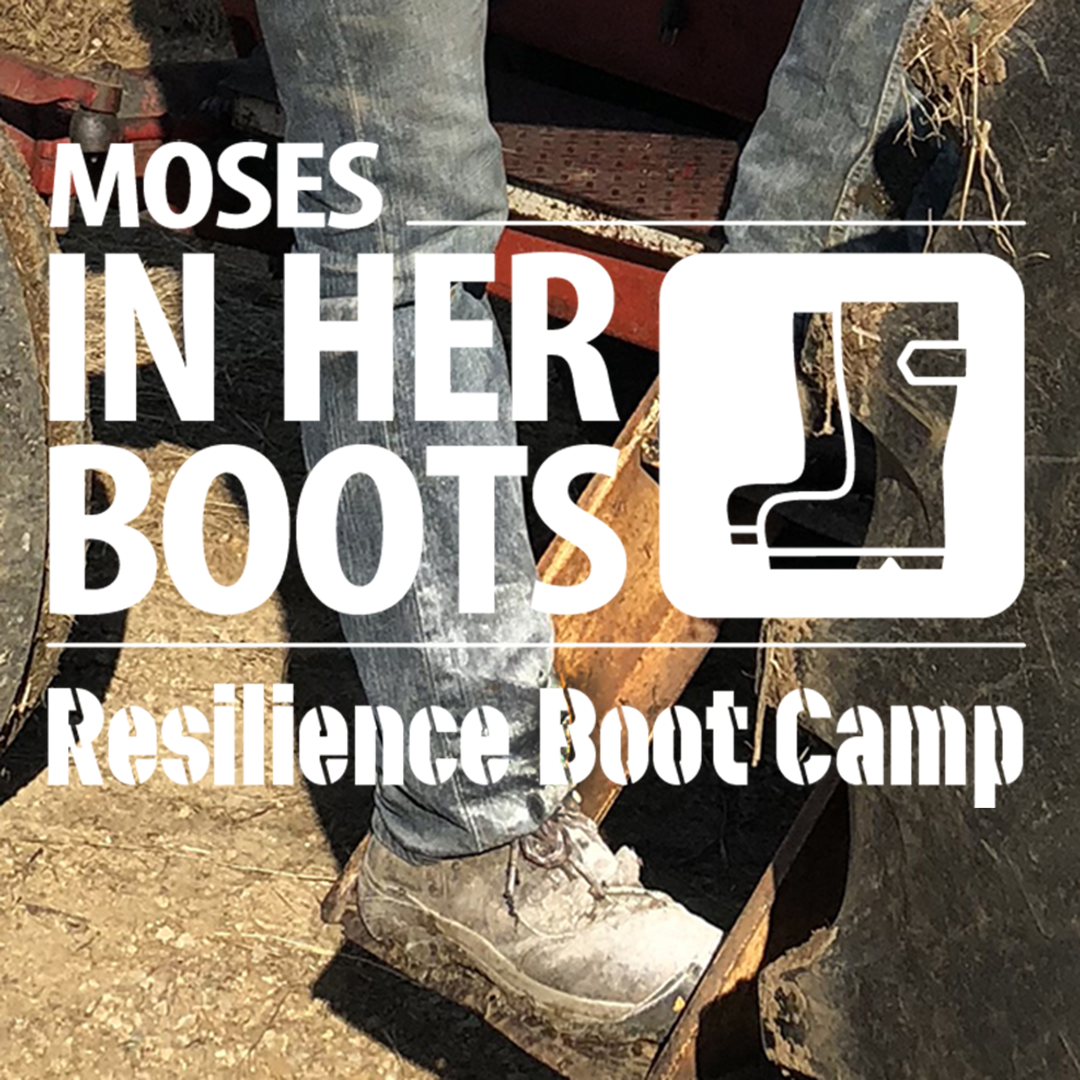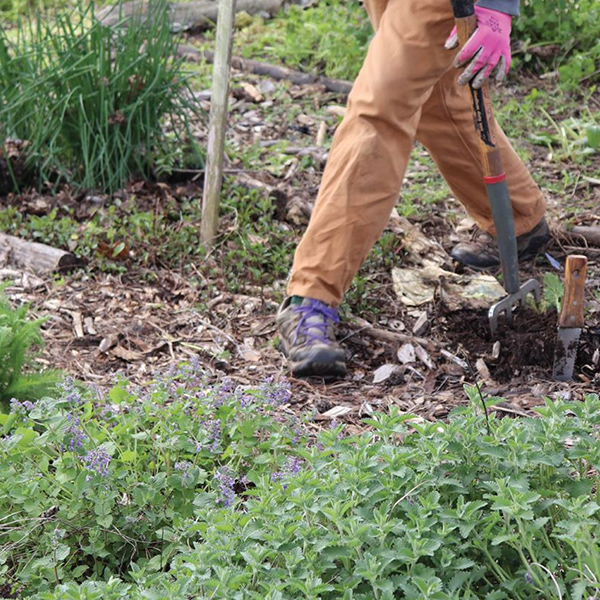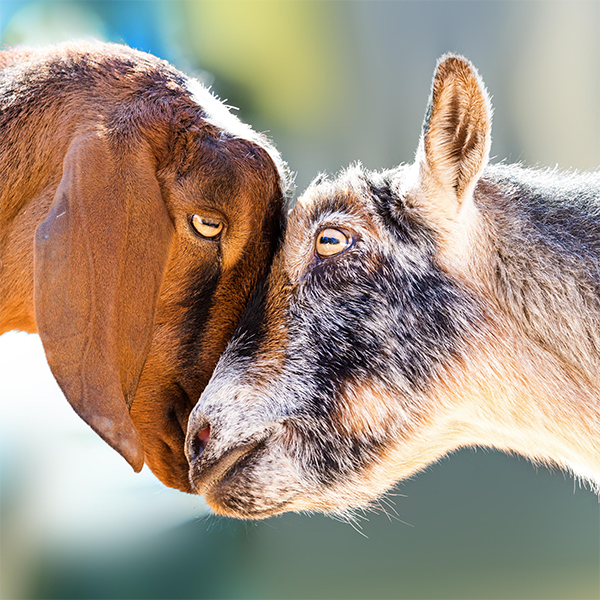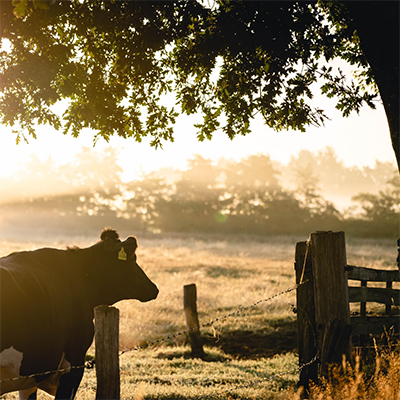|
|
 |
|
|
We are into the fifth week of our Resilience Boot Camp, focusing on regeneration and knowing when we need to rest and renew to keep our passion for farming alive. Thanks to Molly Rockamann of EarthDance Organic Farm School for sharing her story of taking a year sabbatical away from the farm in order to return restored and stronger. If you missed our webinar with Charlotte Smith on time management, you can watch the recorded video here. And, don't forget to sign up for our webinar next Tuesday (Aug. 18) with Denise O'Brien. Have a question about farming, caring for kids or aging parents, ways to regenerate your own passion for farming? Plug into the women farmer community through our Facebook group. This community has a lot of experience! Lisa Kivirist, MOSES In Her Boots Coordinator |
|
|
|
Regenerative Breaks
By Molly Rockamann Founder, EarthDance Organic Farm School 1. Prioritize. We need more rest and renewal in our lives to be able to keep our eyes on the mission of what we want to do. This sabbatical idea kept getting put off till it got to the point where I was just so fatigued and starting to feel jaded about the work. I was overwhelmed by the challenges of not only running a farm, but also managing a nonprofit organization with so many different stakeholders and a board. I felt like I was being leaned on in all these different directions and emotionally drained and feeling like I was trying to give of myself to the point where I was just getting mad really easily and directing that at myself. I knew I needed a substantial break, but also didn't want to just up and leave. |
|
|
|
2. Identify your team. The first step in considering a sabbatical is to look around you and see who's on your team. Is there somebody who could step into your role or help fill some of the needs your farm or organization will have in your absence? Have really open, frank conversations with them about whether that's something they're interested in and then think through what does the process look like to get from where you're at right now to a place where other people are filling your roles. 3. Amp up connections. An unexpected gift of the sabbatical for me was the time and space to realize the importance of prioritizing people and relationships. Taking the time to sit and talk to somebody who's made a big impact on my life and thank them and hear their reflections was huge. In mainstream American culture, we don't necessarily think of the importance of honoring elders and really spending time with people who paved the way for us or taught us a lot, especially in our younger years. 4. Return transformed. Whether it's a farm or an organization, you want them to be able to actually grow stronger in your absence. Having the ability to suspend any ideas or notions of what we “should” be doing leads to transformation. It feels really good now to be a part of that conversation for our future here at EarthDance, as opposed to if I had grown so fatigued and left. Inevitably, organizations change and shift, especially in light of not just the pandemic but the recent highlighting of racial injustices in this country. We need to do things differently. We need to shift resources. We need to shift power. I'm really grateful to be able to be a part of this new phase of EarthDance, whatever that's going to end up looking like over the next few years. |
|
|
|
|
|
Podcast:
Molly Rockamann on Regeneration Listen in for more from Molly Rockamann, founder and Executive Director of EarthDance Organic Farm School in Ferguson, Missouri. Molly shares her story of overcoming burnout by taking a year sabbatical from the farm to travel, experience new things, and prioritize the in-person people connections in her life. Most importantly, she returned to her farming career recommitted and renewed – just in time to lead her organization through the COVID-19 pandemic curveball. |
|
|
|
|
|
|
|
|
|
Resilience Tips from the Field |
|
|
|
 |
Molly Rockamann
EarthDance Organic Farm School “As organic farmers, we naturally see the resilience of nature and are attempting to mimic that in the way that we grow food. By building resilient soil and having resilient farming systems, we're not overly reliant on one particular crop or even one particular season. That is in the nature of the livelihood. On a farm, the work never feels like it's done. There's always a bed that needs to get weeded. There's always some irrigation that needs to get fixed or some customers that need a reminder to pay their invoice or whatever it may be. There’s so many different elements to farming that feel often overwhelming and can really lead to burnout. Reminding yourself to focus on your core can be really helpful to avoid some of those things." |
|
|
|
|
 |
Julie Kenefick
The Farm/Kenefick “We are each in exactly the right place for now. Humanity is asking us to be our best selves on our farms and then teach others to garden, care for animals, manage machines, and grow foods while we tend the land. I arrived here 27 years ago and now know that I am still only a shade past ignorance. The level of learning just to maintain on the farm was straight up. The first Navajo-Churro lamb born here was dead. The ewe had taken a bad fall and needed round-the-clock recovery from infection. And so it continued and we came to be in awe of the sheep, the horses, the geese and the goats and the donkey who have lived here and are buried here. The land and the animals taught us to be patient, to learn by observation and know we are only on this farm for a short while. My favorite poet, Rainer Maria Rilke, reminds me to 'trust in the difficult.'” |
|
|
|
|
 |
Inga Witscher
PBS's Around the Farm Table “Keep your mind open to change. My dairy farm has had several changes over the years – changes in the number of cows I have milked, changes in the marketing of the milk, and changes in the way I have managed the farm. I’ve even experimented with a B&B, garlic, and so much more. It’s easy to look back and think of certain things as failures, but we shouldn’t. We need to see those things as part of the journey to be successful. Find the good in every situation. My barn (and business) burnt to the ground a few years ago. At the time I thought it was the worst thing that could have happened. Now I see it was a way for me to pivot my business and come up with a better plan and a better barn suited perfectly to my needs. It’s good to try new things, that’s part of the fun of being your own boss!" |
|
|
|
|
|
|
|
Recipe for Resilience:
Cheesy Egg Casserole Each week, we share a change-of-taste recipe that blends healthy nutrition and seasonal vegetable abundance with a dash of simplicity. “A grits casserole always brings me back to my North Carolina roots. Only my version now uses Wisconsin-raised polenta from Meadowlark Organics,” shares Dela Ends of Scotch Hill Farm and Innisfree Farmstay in Brodhead, Wisconsin, and a member of the MOSES Board of Directors. “This recipe is super easy and forgiving. This is the version I made last weekend based on what I had on hand. Leftovers make quick meals during the week.” Ingredients: 2 cups polenta 5 cups water 4 beaten eggs ½ cup milk ½ - 1 cup grated cheese (sharp cheddar cheese works great) As much fresh herbs as you like – thyme, parsley, & basil work great ½ tsp. garlic powder Salt & ground pepper to taste (Dela likes smoked ground pepper) 1 cup sliced bell pepper or other chopped veggies Cook polenta and water until water is absorbed. Be sure the water is absorbed and the meal is soft. Mix cooked polenta, milk, cheese, garlic powder, salt/pepper and fresh herbs. Pour into a greased casserole dish and bake at 350º for about half an hour or until set. |
|
|
|
|
|
|
|
She’s Got Your Back: Tap into a Support Network
Tuesday, August 18
1 – 2:15 p.m. CDT With Denise O’Brien
Rolling Acres Farm |
|
|
|
|
|
|
|
|
|
|
|
|
|
Contact Us info@mosesorganic.org | 1-888-90-MOSES |
|
|
|
|
|
|
|